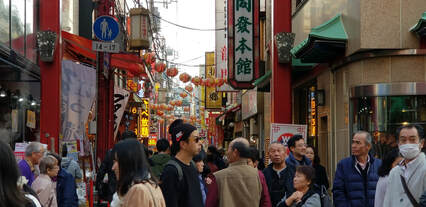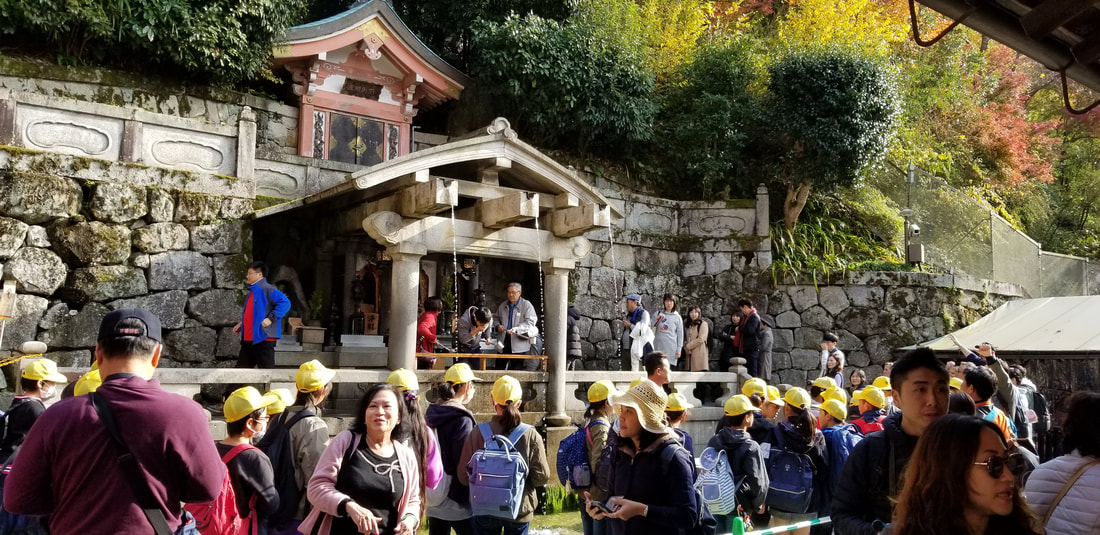
I recently returned from Japan and was not surprised by many things the Japanese do. They have the longest average life spans in the world, 80.9 years for men and 87.7 years for woman. In the US it is 81 for women and 76 for men. Also Japanese can live 75 of those years disability free and fully healthy, according to the World Health Organization.
Lots of us wonder why. Contemporary Japan can be a stressful place. Its hyper-urban people work long hours, at 1,745 hours per worker in 012, suffer through a long and deadening commute, and can easily fret when a subway hold-up makes them just minutes late for meetings with their bosses.The pressure to perform is high, and failure is frowned upon.
So how have the Japanese managed to live so long?
Lots of us wonder why. Contemporary Japan can be a stressful place. Its hyper-urban people work long hours, at 1,745 hours per worker in 012, suffer through a long and deadening commute, and can easily fret when a subway hold-up makes them just minutes late for meetings with their bosses.The pressure to perform is high, and failure is frowned upon.
So how have the Japanese managed to live so long?
There are several things that play a role.
- A combination of small portions, lower-calorie foods like fish and vegetables, and beautiful eye-appealing dishes all contribute to a longer and healthier lifespan, argues Naomi Moriyama in her co-authored book "Japanese Women Don't Get Old or Fat: Secrets of My Mother's Tokyo Kitchen."
- Some physicians point to a trend of longevity thanks to a host of meals that carry a low long-term risk of stomach cancer or arteriosclerosis, like tofu, konbu seaweed, squid and octopus.
- Tea: Japanese people drink a ton of tea. Americans drink a ton of coffee. While there's something to be said in regards to everything in moderation. I feel like one cup of tea is going to be better for you than one cup of coffee, especially when we're talking larger amounts. Green / Oolong Tea is full of antioxidants (good for fighting that cancer thing), and apparently helps break up oils in the digestive system, keeping those bowels happy.
- Calories: According to Greg O'Neill, director of the US National Academy on an Ageing Society, Japanese people eat a third of the calories Americans eat. Now, Japanese people do tend to be smaller, so this kind of makes sense, but on the other hand Americans tend to eat too many calories. Next time you do fast food, look at the calorie counts. It can get pretty ridiculous, sometimes.
- Others hint at the relative happiness and stress-free lives of Japan’s elderly, who can live to old age without hefty health bills thanks to the help of children. Senior citizens can enjoy their final years without withering away in hospitals that pour resources into extending their lives more than ensuring quality of life.
- Their healthcare system-Since 1961 Japan has had universal healthcare, with equal and universal access to healthcare for all, through a health insurance scheme (paid for by government, employers and individuals).
- In Japan regular check-upsare also the norm. Mass screening is provided for everyone at school and work or in the community by local government authorities. This may help people become more health conscious.
- Social Support: Shiro Horiuchi, in the Japanese Journal of Population Studies in 2011 identifies social cohesion as one factor providing a particular advantage when it comes to longevity. The strong group orientation seems conducive to the psychological well-being of Japanese people with low socio-economic status. It gives them deep feelings of belongingness to organizations and communities, keeping them from feeling alienated in the society.The feeling gives them relatively high self-esteem (in spite of their low ranks and salaries), and helps them to have positive perceptions, emotions and attitudes about their lives
- Hanging out, drinking, and socializing: I'm not saying that drinking a lot is good for your health (though some studies say it's not all that bad, showing that drinkers actually live longer than non-drinkers, overall), but the socializing that goes along with it is. When it comes to business in Japan, employees are often required to go out and socialize, drink, and have fun after work. Although this takes away from sleep time (probably not as good for people who want to live long), socializing is really important for your psychological health. The better that is, the more you'll enjoy life and keep on living. By doing this you make friends, know more people, build a network, and so on. This means you have more friends later on in life, which means you'll enjoy life more when you're older too. When you enjoy life, you just want to live longer. It's as simple as that.
- More daily exerise. Everyday life in Japan involves more commuting by public transport than by car, meaning more daily exercise than, for instance, in the US. In Matsumoto, officials have developed a network of more than 100 walking routes to encourage people to exercise. Community groups and neighborhood associations organize communal walks — not difficult in group-oriented Japan. Even in winter, clusters of residents can be found regularly walking along Matsumoto's streets, parks and canals and around its historic medieval castle downtown.
- Personality plays a part. Personality (especially conscientiousness, openness and being extroverted) also seem to be important.
- Retiring Later : Japanese officials encourage people to postpone retirement or begin second careers, in part to maintain a healthy lifestyle longer. Nagano is ahead of the curve there as well. Nearly 1 in 4 people over 65 are still in the workforce — the highest rate in Japan. "We don't really know if people in Nagano continue to work because they are healthy, or if they are healthy because they continue to work," says Hiroko Akiyama, a professor at the University of Tokyo's Institute of Gerontology. "But we believe working does affect health." Some people retire from long term jobs and then go back to working a different job or for their families.
- Taking care of grandma and grandpa: In Japan, the oldest kid is supposed to take care of the parents when they get old. The parent(s) live with the kid and help out around the house (until they get too old to, I suppose). Although this is changing a bit and fewer kids are helping out with their parents, it's still really common. Having your kid(s) around, and grandkids around has to be a pretty nice psychological boost for the old grandma or grandpa, urging them to live longer and enjoy their time with their family. Plus, since they're helping out around the house, it means they're moving around (walking is important, right?), doing things, and staying active. Although I didn't find any data to support this, I can't help but see this as being a perk if you're an old person in Japan. Being old and living in a retirement home would be depressing, and probably helps a lot of old people lose the will to live as long.
- A healthy diet can help you live longer, wherever you live. So follow government healthy eating guidelines.
- Universal healthcare, with equal access to all (as we also have in the UK) helps too.
- We shouldn’t underestimate the value of social cohesion - the sense of belonging to organisations and communities. We need to consider how to achieve this both as individuals and as a society.
- Avoid the factors that risk reducing longevity in Japan, like fast food and overwork.
